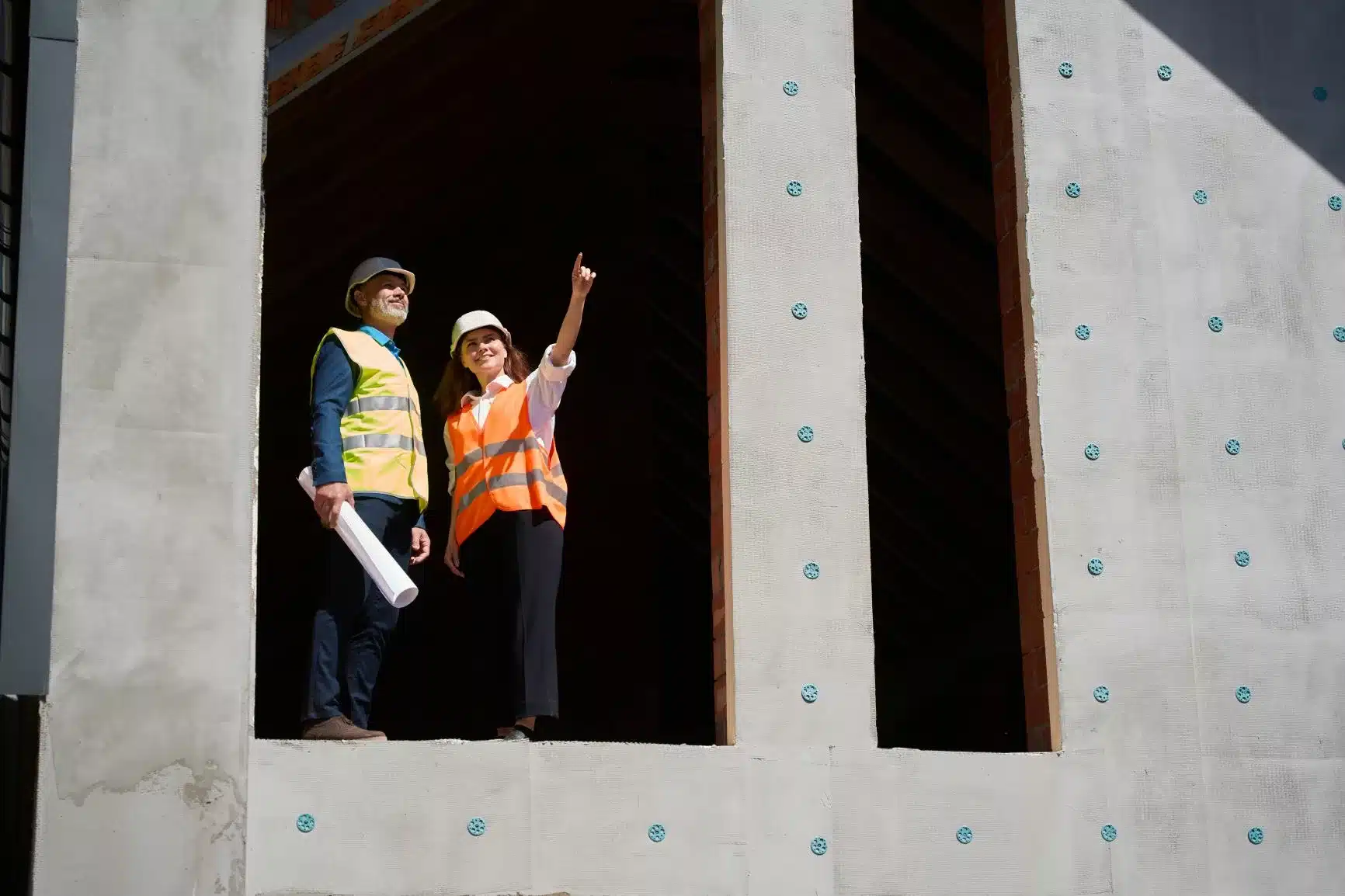Despite ongoing economic uncertainty, employment in the construction industry continues to grow – the sector mainly demands physical laborers, specialists in the road, bridge, railway, sanitary and electrical sectors. A rise is forecasted in the importance of sustainable construction, as well as modular and prefabricated construction, according to the “Industrial Sector Wage Report 2024” by Grafton Recruitment.
“There’s no doubt that the condition of the industry, including construction, strongly resonates with the global economic and geopolitical situation, as well as changes and new legal regulations. The twice raised minimum wage this year (an increase of 17.2% compared to 2023) will influence a significant percentage increase in wages in this area,” says Danuta Protasewicz, Regional Manager of Grafton Recruitment.
The overall economic climate index, which stood at a negative of -2.2 for construction in July, reflects the state of affairs in the sector. However, it should be emphasized that this was more favorable than in the industrial processing sector (-9.8). A slight improvement in the business climate is expected in the last quarter of 2024, but most experts optimistically look forward to 2025.
The geopolitical location of Poland may undoubtedly be a catalyst for the development of the construction industry. New investments aimed at shortening the supply chain will require the creation or modification of existing infrastructure. Global trends in sustainable construction and the wave of green transformation also have a significant impact on the industry.
The construction sector needs to make efforts to search for and implement innovative, ecological solutions, and technologies with low environmental impact and optimized operating costs. A rise is also forecasted in the popularity of modular and prefabricated construction, which will result in cost reduction and shortened project completion times.
“The Polish construction market is primarily counting on the activation of funds from KPO, GDDKiA and EU funds. Thanks to them, there will be an increase in the number of energy and infrastructure projects, especially in the photovoltaic farm segment and the modernization of the energy network. In the context of promoting the principles of green transformation, an increase in the popularity of sustainable construction based on ecological solutions and modern technology is also forecasted,” explains Ewa Gumbarewicz, Team Leader at Grafton Recruitment.
Demand for Workers
In the first quarter of 2024, demand for physical positions in the industry reached the second highest level since 2020. The construction industry reports a demand for specialists above the average market demand. The construction industry also records increasing demand for specialist roles. Employers may have the most difficulty procuring specialized workers from the road, bridge, railway, sanitary and electrical industries.
Wage Levels in the Construction Sector
“Wages in other sectors of the economy are higher and are growing faster than in the industry and construction. We expect wage growth to be slightly below averages for the entire economy,” explains Danuta Protasewicz, Regional Manager at Grafton Recruitment.
The average gross wage in the construction sector remains relatively low compared to other industries and amounts to PLN 8136.56 gross. For comparison, in the electricity, gas, steam and hot water supply industry, it is PLN 11,071 gross.
As shown in the Grafton Recruitment Industrial Sector Wage Report, in construction, a contract manager earns up to PLN 30,000, a project manager up to PLN 25,000, a construction manager up to PLN 20,000, a bridge/roadwork manager and an electrical work manager up to PLN 19,000, a sanitary work manager up to PLN 17,000, and a construction and civil work manager up to PLN 16,000. A construction engineer can expect a salary of up to PLN 12,000, a costing specialist up to PLN 11,000, an electrical installation designer up to PLN 18,000, and a sanitary installation designer up to PLN 16,000.
“It’s important to remember that the post-pandemic trend of remote and hybrid work does not apply to specialists in the sector. The realization of construction facilities not only requires direct supervision from workers but also greater openness to working outside their place of residence, which affects recruitment processes,” says Ewa Gumbarewicz, Team Leader at Grafton Recruitment.
The demand for construction specialists remains high. Employers may have difficulty procuring not only qualified and unqualified physical workers. There is a great demand for specialists, mainly project managers, engineers, and designers. Why is this?
Education in Technical Fields
One of the main reasons for staff shortages is the systematically decreasing number of students in areas such as technology, industry, construction – it has decreased by almost 5% year on year. During the same period, the total number of students increased by 0.4%.
The largest declines were noted in the Opole (-9.3%), Warmian-Masurian (-8%) and Lodz (-7.5%) provinces. The only region where the number of students, including in the field of construction, increased was the Pomeranian Voivodeship (1.1%).
“Undoubtedly, this is a disturbing trend that can have negative consequences for the Polish economy. Technical directions are key to the development of many industries. The decrease in the number of students, and consequently, graduates, can lead to staff shortages in the future, which could negatively hinder the realization of investments,” says Ewa Gumbarewicz, Team Leader at Grafton Recruitment.
Full report link: https://pl.grafton.com/pl/raport-wynagrodzen-sektor-przemyslowy-2024
About the report: The “Industrial Sector Wage Report” was created based on research conducted by experts from Grafton Recruitment and Gi Group Poland S.A. in the first quarter of 2024. It contains detailed information about wages for more than 180 positions in various areas of industry, analysis of statistical data, and labor market research results, which have been enriched with comments from experts and practitioners. The report presents wages for more than 180 positions in the industrial sector divided into sectors: automotive and equipment manufacturing (white goods, industrial automation), chemicals and FMCG (food production, packaging, medical and pharmaceutical industry), research and development and engineering centers, distribution centers and construction.
Source: https://managerplus.pl/polska-branza-budowlana-deficyt-specjalistow-rosnace-place-i-zapotrzebowanie-75286
